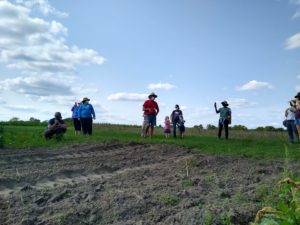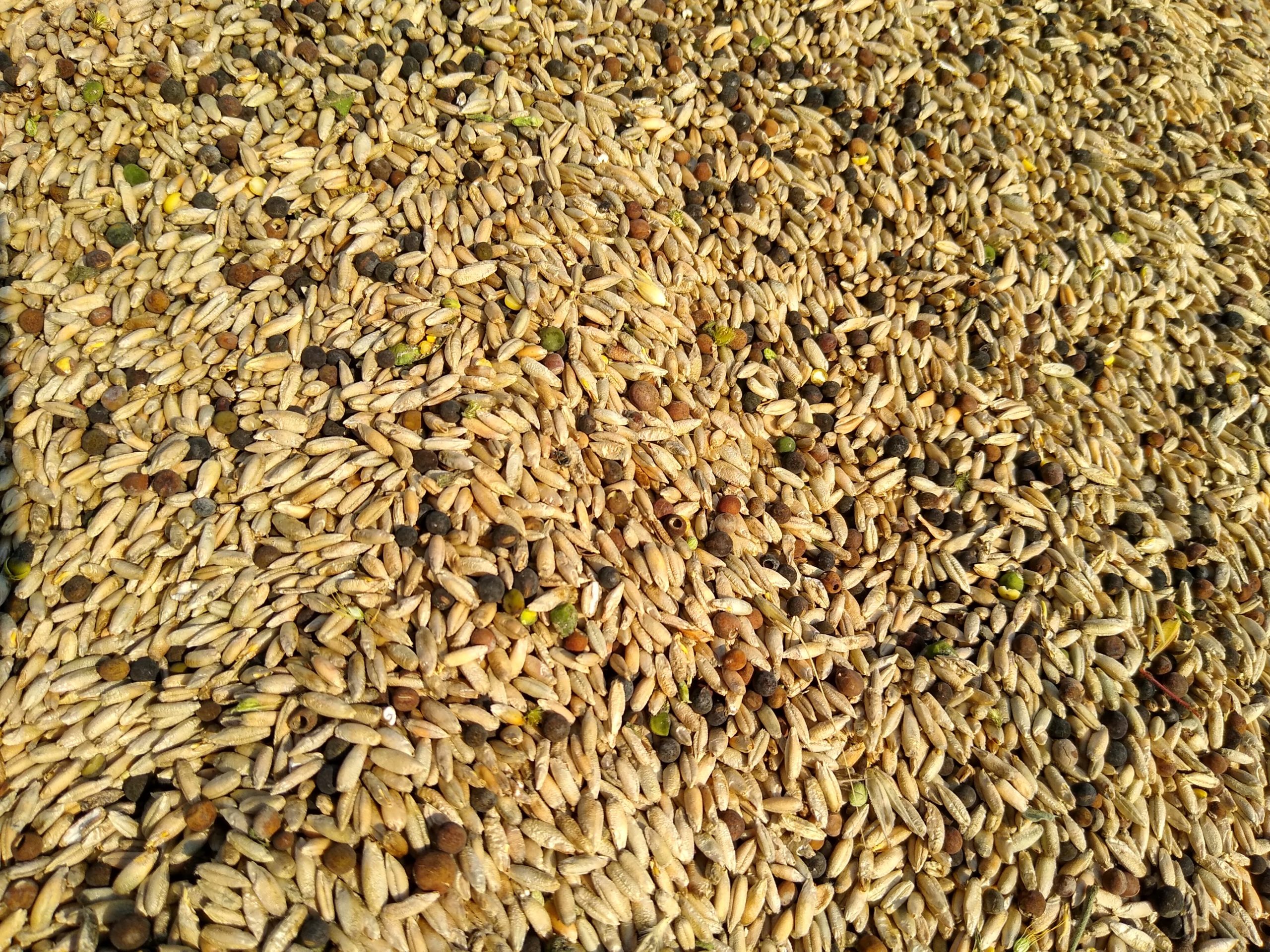
On September 1, 2021, an enthusiastic group of farmers, gardeners, researchers, and community members gathered at Riverbend Farm in Delano, Minnesota. Surrounded by the abundance and buzz of a late-summer Midwestern afternoon, participants learned about regionally adapted crop varieties, breeding for organic conditions, and how to harvest seeds for saving or selling.
The field day featured a walking tour led by experienced organic farmer and seed saver, Greg Reynolds. He invited the group to roam through the rows of crops, tasting tomatoes and inspecting plants for their resistance to disease and earliness of fruit maturation. Greg explained that this careful observation, combined with selective seed saving, has allowed him to breed novel varieties that often outperform commercially available cultivars on his family’s farm.

Co-organizing the event alongside Organic Seed Alliance and Riverbend Farm were representatives from University of Wisconsin’s Seed to Kitchen Collaborative and the freely-accessible website Seedlinked. These initiatives work together to convene farmers, gardeners, plant breeders, chefs, and eaters to accelerate the process of developing new cultivars and evaluating crop performance across diverse conditions. Field day attendees learned how Riverbend Farm partners with these organizations to support their breeding efforts and share their findings with a larger audience.
At the end of the field walk, Greg was joined by fellow farmer Clint Freund of Cultivating the Commons to demonstrate the use of small to medium scale seed cleaning equipment for dry and wet seeded crops. The larger machines featured in the presentation, a century old fanning mill and practically new Millett wet seed thresher, are efficient tools for producers that sell seed commercially or require large quantities of seed for their farm use. Smaller DIY-tools, like the wood-framed screens and shop-vac or box-fan powered winnowing set-ups on display, are often used for smaller scale seed saving projects.

Also present at the event were representatives from Nature & Nurture Seeds and Seed Savers Exchange, companies seeking new seed growing partners for upcoming growing seasons. Resources were available to help interested persons understand the logistics and economics of these contracts. Both Greg and Clint shared stories about their experiences working with seed company partners to diversify their income sources and support their seed-saving and breeding projects.
To conclude the event, participants were asked to envision a project they could pursue related to seed saving, variety evaluation, or plant breeding. Koby Jeshkeit-Hagen, founder of the non-profit Seed Sages and co-organizer of the event, was present to offer encouragement, advice, and technical training for all who needed it. As the sun nearly set on the seed-stuffed afternoon agenda, a delicious vegetarian dinner was served and participants sprawled out across the Reynold’s backyard to share stories, challenges, and aspirations with each other.
Live video highlights of the event were captured by farmer and soil scientist, Tiffany LaShae, and posted on the Organic Seed Alliance Instagram Page. To learn more about all of the exciting happenings from the field day, check out these five video clips.
View this post on Instagram
View this post on Instagram
View this post on Instagram
View this post on Instagram
View this post on Instagram
If you have any questions or comments about the event or anything related to regionally adapted seed, feel free to email Michael Lordon at Michael@seedalliance.org.
